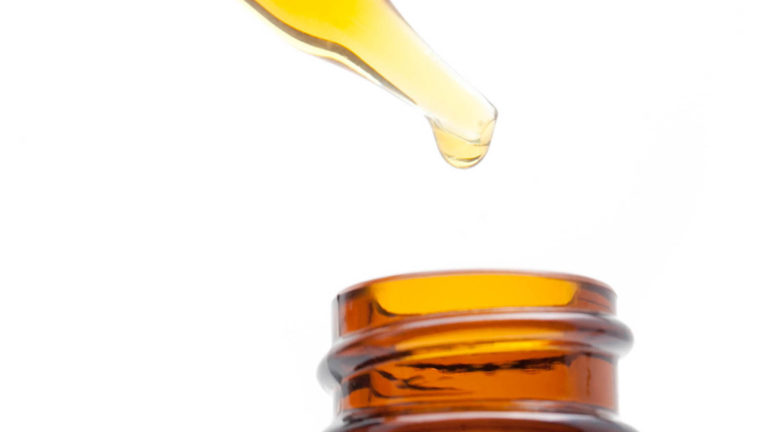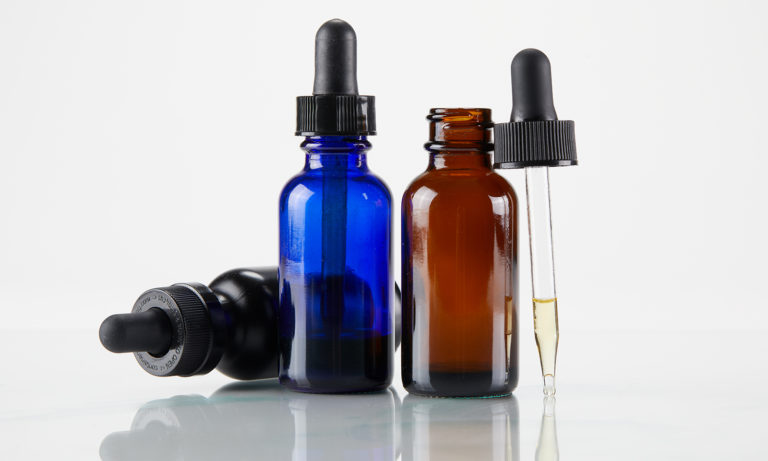Cannabis-derived products, including CBD, were legalized for eligible Arizona medical marijuana patients in 2010. Adult-use cannabis remains illegal following a failed initiative in 2016.
While the guidelines for the cultivation and production of industrial hemp in Arizona were outlined in 2018 Senate Bill 1098, the state's CBD market is relatively unregulated at present due to the absence of specific state law. As a result, CBD remains relatively easy to purchase—so long as the CBD was derived from industrial hemp plants that conform with federal requirements.
What is CBD?
CBD is a non-intoxicating cannabinoid found in cannabis and the second-most prominent in the plant after THC, which is largely responsible for producing an intoxicating high. CBD can be sourced either from marijuana or hemp plants and has a wide range of potential therapeutic benefits.
 Photo by: Gina Coleman/Weedmaps
Photo by: Gina Coleman/WeedmapsImage lightbox

To date, researchers have identified a number of potential applications linked to CBD, including anti-inflammatory, analgesic, anti-anxiety, and anti-seizure properties. Further, the chemical has shown promise in treating numerous health conditions, including seizure disorders, mood disorders such as depression, anxiety, and psychosis, chronic pain, and many more.
Most raw cannabis strains on the market today contain small amounts of CBD, especially compared with THC. But since the cannabinoid has gained considerable attention for its wide range of purported therapeutic benefits, more high-CBD strains have recently been cultivated.
Why is CBD sometimes illegal?
All types of cannabis, including hemp strains that don't produce enough THC to cause intoxication, were considered illegal under the Federal Controlled Substances Act of 1970. The law categorized all cannabis as Schedule 1, which defined the plant as a highly addictive substance with a high potential for abuse and no accepted medical use.
The 2018 Farm Bill re-classified hemp as an agricultural commodity and made its cultivation federally legal. Further, the act removed some forms of cannabis from Schedule 1 status by creating a legal distinction between hemp and marijuana. Hemp is cannabis with less than 0.3% THC, and marijuana refers to cannabis with more than 0.3% THC. This distinction in federal law effectively legalized CBD that is derived from cannabis with less than 0.3% THC, as long as it has been cultivated according to federal and state regulations.
The 2018 Farm Bill legislation does not mean that CBD derived from hemp is universally legal throughout the United States. According to the Farm Bill, the Food and Drug Administration (FDA) has the power to regulate CBD product labeling, including therapeutic claims and the use of CBD as a food additive.
The FDA has declared that even hemp-derived CBD may not legally be added to food and beverages, or marketed as a dietary supplement. Although the organization has begun to re-evaluate some of its stances on legal CBD products, the FDA has not revised its regulations. The agency also has been strict in its position against any labeling that could be perceived as a medical claim about CBD.
In addition to the federal regulation of CBD, the Farm Bill also gave states the option to regulate and prohibit the cultivation and commerce of CBD. States may also regulate CBD in food, beverages, dietary supplements, and cosmetic products independently, even before the FDA finalizes its policies.
Arizona CBD laws
To date, Arizona lawmakers have not created specific regulations for hemp-derived CBD products; rather, the state's hemp legislation makes subtle references to CBD products.
The Arizona State Legislature passed SB 1098 in May 2018. This bill allows the state to establish and regulate a program for growing, harvesting, processing, researching, and selling industrial hemp. There are several critical provisions within this bill, although ambiguously worded, that have come to define Arizona's stance on CBD.
Firstly, 'industrial hemp' is defined as a cannabis plant that contains no more than 0.3% THC by dry weight. The law also makes an important distinction that any part of the plant that meets this definition is by extension allowable.
The second key provision is the bill's reference to hemp products. SB 1098 expresses that Arizona's industrial hemp program is designed to research the growth, cultivation, and marketing of industrial hemp, hemp seeds, and hemp products. 'Hemp products' are defined as all products formulated from a legal industrial hemp plant. This wording also implies CBD products derived from an industrial hemp plant.
Ultimately, Arizona law has made no explicit rulings either way on the specific issue of hemp-derived CBD. But recent legislation such as SB 1098, combined with the 2018 Farm Bill, have in practice established the precedent that hemp-derived CBD oil and other CBD products will not be prosecuted by the law.
 Photo by: Gina Coleman/Weedmaps
Photo by: Gina Coleman/WeedmapsImage lightbox

CBD products derived from cannabis are legal for medical patients registered in Arizona's medical marijuana program.
Licensing requirements for CBD
Individuals who wish to cultivate, harvest, transport, process hemp, or open a hemp plant nursery in Arizona must first apply for a license issued by the Arizona Department of Agriculture. Applicants must complete the application form, provide a copy of a Level I Fingerprint Clearance Card, and pay the applicable fee for the license they are seeking. Licenses are to be renewed annually.
Growers must submit pre-planning reports before planting, reports within seven days of planting, and notify the Department of Agriculture within 14 days before harvest to schedule an inspection and take samples for THC testing.
Individuals who are selling, manufacturing, or marketing hemp or CBD oil products do not require a license from the Department of Agriculture. The Department's oversight only reaches to the growth and cultivation of industrial hemp.
Arizona CBD possession limits
The state of Arizona has not yet established limits for hemp-derived CBD possession.
There are possession limits, however, for patients registered with Arizona's medical marijuana program. Registered patients can purchase cannabis products containing both THC and CBD at licensed medical marijuana dispensaries. Patients are allowed to possess up to 2.5 ounces of cannabis over a 14-day period.
While Arizona has no explicitly stated penalties for those found in possession of cannabis-derived CBD, there are penalties for those found with cannabis in their possession.
Individuals found with less than two ounces may be charged with a felony, receive a sentence of 4 months to two years, and a maximum fine of $150,000.
Individuals found with 2 to 4 ounces in their possession may be charged with a felony, receive a sentence of 6 months to 2.5 years, and a maximum fine of $150,000.
Individuals found with more than 4 ounces in their possession may be charged with a felony, receive a sentence of 1 to 3.75 years, and a maximum fine of $150,000.
Where to buy CBD in Arizona
Currently, you can buy CBD oil and other CBD products both online and in storefronts throughout Arizona. These shops include convenience stores, health food stores, organic stores, coffee shops, and CBD-specific retailers.
 Photo by: Gina Coleman/Weedmaps
Photo by: Gina Coleman/WeedmapsImage lightbox

When it comes to online sales, CBD is most frequently found on brand-specific websites. You can also find verified CBD brands on Weedmaps.
Reputable brands will generally provide you with essential product details, including the form of the CBD (such as oil, capsules, topicals, tinctures, etc.), the quantity of CBD the product contains, the other chemicals or ingredients present in the product, and more.
When purchasing from a brick and mortar shop, particularly if the store specializes in CBD, you can typically receive guidance from an employee. Explain what you're looking for, your reasons for consuming CBD, and they can point you in the right direction.
How to read CBD labels and packaging
The 2018 Farm Bill shifted the oversight of hemp and hemp-derived products from the U.S. Department of Justice (DOJ) to the U.S. Food and Drug Administration (FDA). The FDA does not presently allow CBD-infused food, drinks, or dietary supplements to be sold, and hasn't yet provided regulations for hemp-derived CBD products.
Still, the agency warns that regulations in flux still require companies to make legitimate claims on their labels. Buyers should nonetheless approach CBD products with caution. Most reputable CBD producers typically include the following information on their CBD product labels:
- Amount of active CBD per serving.
- Supplement Fact panel, including other ingredients.
- Net weight.
- Manufacturer or distributor name.
- Suggested use.
- Full-spectrum, broad-spectrum, or isolate.
- Batch or date code.

